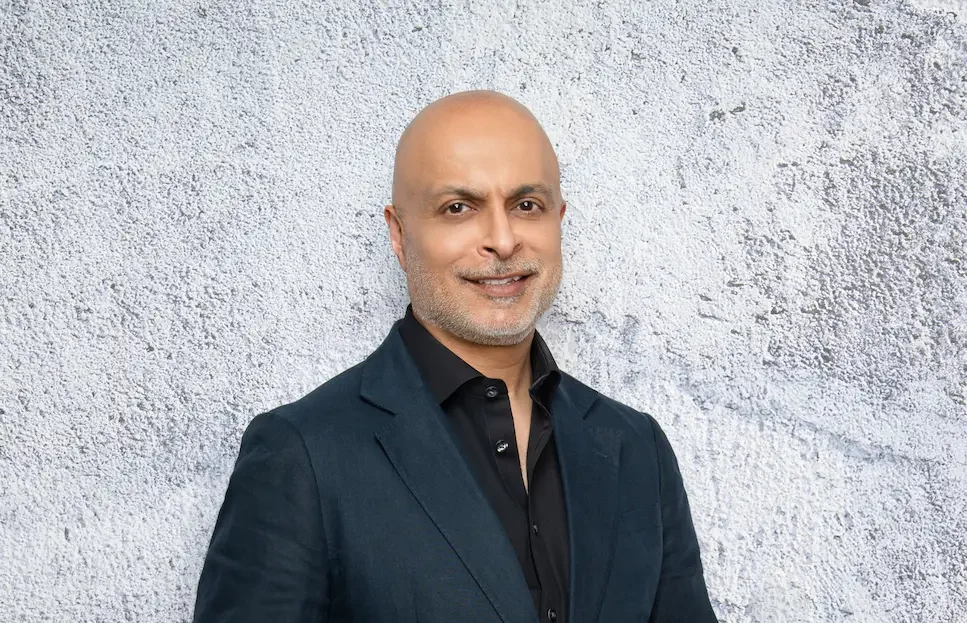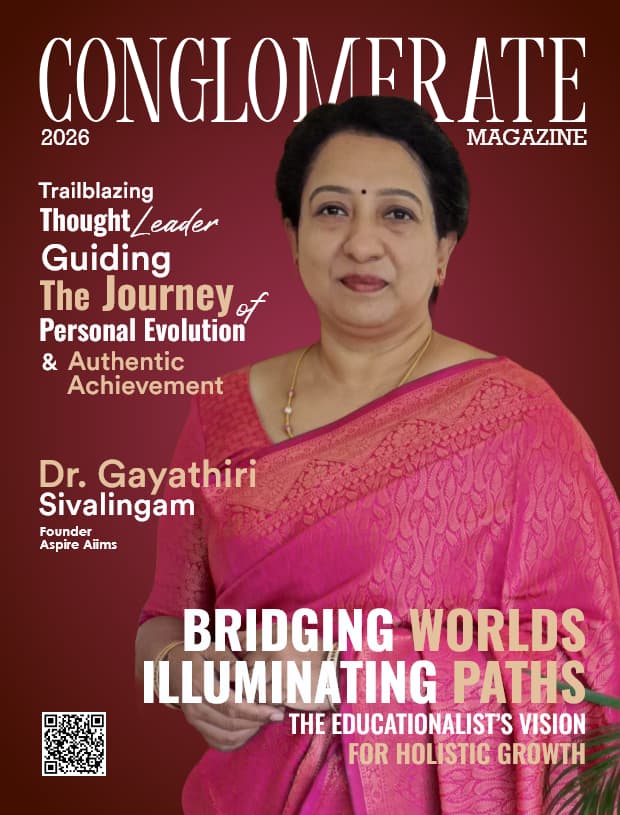In an era where consumer attention is the most precious commodity, few leaders have mastered the art of customer loyalty and personalization quite like Premal R. Patel. As Founder and CEO of TKOP World Ltd, Patel has pioneered an approach to business that places cultural intelligence and data-driven personalization at the center of customer engagement strategies. This month’s feature explores how his unique journey shaped a visionary who is redefining loyalty in retail and financial services, and examines the philosophy behind his success in unified commerce.
From Market Trading to Marketing Transformation
Premal Patel’s journey into customer loyalty began far from the boardrooms of major corporations. At just eleven years old, he found himself selling floor mats at a local market every Sunday morning. “I really enjoyed the interaction with customers and the ‘buzz’ when a customer purchased a product,” Patel recalls. “I also noticed that some customers regularly came back or made referrals to others because they enjoyed the interaction and service.”
This early fascination with customer relationships would eventually evolve into a distinguished career spanning banking, retail, and now his own venture—TKOP World Ltd, established in January 2025. The young market trader who once dreamed of becoming a pilot has instead become a pioneer in customer loyalty innovation, partnering with global brands like Sainsbury’s, NatWest, and Visa to transform how they engage with consumers.
While his early career in banking provided financial stability, it was his move into marketing that ignited his passion for data-driven customer engagement. “This is where I learned about customer loyalty and my inspiration began at a much deeper level,” he explains. “I saw the power of data in action and how this data was turned into actionable insights.”
But it was the fast-paced grocery retail world that truly cemented his expertise. “I loved the fact that data could be used to influence shopper behaviour and simple targeted marketing campaigns would encourage customers to keep coming back.”
The Evolution of Consumer Expectations
Patel has witnessed dramatic shifts in consumer behavior over the past decade—technological advancements, changing demographics, a global pandemic, and increasingly vocal consumer feedback have transformed the retail and financial services landscapes.
“We have moved out of the omnichannel era and moved into the ‘unified commerce’ era where marketing and sales channels are interconnected,” Patel observes. This fundamental shift demands a new approach to customer engagement, one that accommodates five critical areas of change:
- Speed and Convenience: “Consumers are becoming rapidly impatient,” notes Patel, expecting faster shipping, easier returns, and instantaneous financial transactions.
- Transparency and Trust: With increased awareness of data usage, consumers demand clarity about how their information is handled.
- Sustainability and Ethical Sourcing: Particularly among younger generations, values alignment has become a purchasing criterion.
- Omnichannel Experience: Shoppers expect seamless journeys across physical and digital touchpoints without friction.
- Personalization: Perhaps most significantly, consumers now expect tailored experiences, willingly exchanging data for relevant value.
The Science of Personalized Engagement
What distinguishes Patel’s approach is his sophisticated integration of data science with human psychology. For him, personalization isn’t simply about targeting—it’s about creating meaningful relationships with measurable business outcomes.
“Personalisation is about delivering the right product at the right time through the right channel,” he explains. “You can do this if you truly know your shopper behaviour at a deep level—those who do this well will win in the long-run.”
His success story with a major UK grocery retailer demonstrates this approach in action. By implementing personalized point-of-sale targeting with real-time printed coupons, the initiative drove an annual sales uplift of 1.5-2% of total revenue—a remarkable achievement in the notoriously tight-margin grocery sector.
Another case study with an iconic US beauty brand showcases the power of precision targeting. By segmenting customers based on value and focusing on haircare—the biggest contributor to category decline—the program achieved a 10.5% overall uplift, with haircare specifically seeing a 6.3% improvement.
The Future of Loyalty: Beyond Points and Transactions
According to Patel, we’re witnessing a fundamental transformation in how loyalty programs operate:
“Standard loyalty programmes offering points are being recognised for what they are: undifferentiated, under-utilised and high cost,” he asserts. The future belongs to brands that can create deeper connections through more meaningful value exchanges.
Where today’s loyalty programs rely primarily on simple points systems and basic rewards like free coffee, tomorrow’s successful initiatives will embrace a wider variety of recognition mechanisms with stronger emotional content. Rather than focusing solely on transactions, future programs will understand behavior patterns and build genuine 1:1 relationships through frequent, two-way communication.
Patel envisions an evolution from the current landscape of frequent but shallow interactions with multiple retailers to a world where every retail touchpoint offers multiple data capture moments and deeper connection. The move from primarily online email engagement to “anywhere, anytime, and on any platform real-time” interactions will fundamentally change how brands build loyalty.
The infrastructure supporting these programs will similarly transform—shifting from established large providers and multiple specialists with high costs to retailer-controlled third-party ecosystems featuring flexible, continuously changing architecture that can rapidly adapt to consumer expectations.
“Loyalty has moved from transactional to more experiential experiences,” Patel notes, “where customers are willing to engage in the right conversation and interaction if they feel it is worth the effort. Winning a place in each customer’s basket requires building trust and emotional connection.”
The emerging technologies driving this transformation aren’t surprising—artificial intelligence leads Patel’s list of game-changers. “AI, without a doubt, will play a massive role in shaping the future of shopping, customer loyalty and retention,” he predicts. “AI can work behind the scenes to drive the right product to various consumer segments, even the segment of 1.”
But technology without trust is meaningless. Patel emphasizes that balancing innovation with customer trust requires transparency, engagement, data protection, education, strong customer service, and consistent brand quality.
Leadership Through Cultural Intelligence
Patel’s leadership philosophy reflects his global perspective, having worked across diverse markets including the UK and Middle East. He notes significant cultural differences in loyalty approaches: “UK customers often prioritise convenience and price over personal connections… Middle East—the region thrives on relationships and these are highly valued.”
This understanding of cultural nuances has enabled Patel to deliver highly impactful products and campaigns across both regions. However, his approach to building organizational culture stems from a deeper source. “My passion to influence organizational culture comes from the knowledge that culture is the fundamental requirement in order to deliver strategy,” Patel explains. This philosophy was put to the test when he “inherited a toxic business culture” in a previous leadership role. Through a strategic culture transformation initiative, his team eventually won multiple Great Place to Work awards, including recognition for wellbeing and women in leadership.
His leadership principles focus on vision and purpose, continuous learning, autonomy, recognition, and trust—values he now shares as a board advisor and mentor. “My role is to enable and empower others to succeed and win,” he explains.
The Global Legacy of a Loyalty Visionary
As founder of TKOP World Ltd, Premal Patel represents a new paradigm of leadership that balances data-driven strategy with human connection. His approach to customer loyalty transcends traditional metrics, creating sustainable engagement through cultural intelligence and personalized value.
“My purpose in life is to inspire and improve the quality of life of as many people as I can,” shares Patel, “and this is the legacy I hope to leave the world.”
In an increasingly fragmented attention economy, his vision offers a compelling alternative: business as a vehicle for meaningful connection, a catalyst for trust, and a means for creating value that resonates across cultures. His story reminds us that true loyalty isn’t measured in points or transactions, but in relationships built on understanding and relevance.







